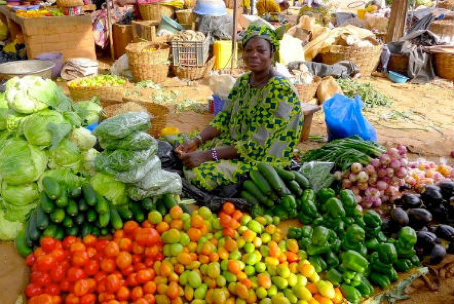– NETRIGHT shares insights from its advocacy in 2020
Since March 12th 2020, when the first case of COVID-19 was recorded in Ghana, all of Ghana’s institutions have had to adapt to its reality.
The Ghana Statistical Service has conducted a number of surveys to give us insight into the impact of COVID-19 on our lives. There are also a few studies underway in the country to assess the pandemic’s impact.
One such effort is led by the Network for Women’s Rights-Ghana and the Institute of African Studies at the University of Ghana. Their study is part of a three-country study (Ghana, Tanzania and South Africa) being coordinated by the Institute for Poverty, Land and Agrarian Studies (PLAAS) based in South Africa, with funding from the International Development Research Centre (IDRC) based in Canada.
As part of the research project, NETRIGHT is working with farmer and fisher groups to understand their lived experience of COVID-19. To this end, a social dialogue was held with representatives from a variety of civil society and non-governmental organisations as well as individual fisher folk and farmers on the 11th of December, 2020.
Participants shared both the negative and positive impacts of COVID-19 on their farming and fishing enterprises. With particular reference to the lockdown period, both farmers and fishers were unanimous that it had a negative impact on their jobs. Farmers discussed the difficulties associated with carting their produce from the outskirts of Accra to markets in Accra. There were only a few cars on the road because of the ban on movement except for the provision of essential services. It was therefore difficult finding transportation, especially trotros. Taxi drivers had also increased their prices drastically due to the increased demand for them. Farmers either had to pay these increased prices for taxi rides or wait for an extremely long time to get a trotro.
The fisher folk from Central Region also faced difficulties with transportation. They were not allowed to come into the Greater Accra Region, so they sent their goods off with drivers and asked their partners to pick up the fish from those drivers. However, the system did not work too well because of the unscrupulous nature of some of the drivers and/or traders. Thousands of cedis worth of fish were lost in this process. Some transporters have still not recovered from the losses of this period.
Fish traders also commented on the financial difficulties associated with the rotational system that some district officials put in place at the markets. Given how little these traders make on a daily basis, it was difficult for them to comply with the directive to stay out of the market on certain days. In defying the directive, they risked being manhandled by security officials – but staying home also meant that they could not feed their families. Neither of these two positions was tenable, and the fish traders described the period as particularly stressful.
Mr. Emmanuel Asare, the Programmes, Monitoring and Evaluation focal person for Development Action Association, was of the opinion that there was a silver-lining to the COVID-19 pandemic. He pointed out three ways in which the pandemic had provided some opportunities in fishing communities. He noted that the increased concerns about hygiene during this period had hammered home the importance of preserving and handling fish in hygienic ways, and he is hopeful that these changes will persist even after the pandemic is over.
Secondly, with specific reference to the advocacy work of Development Action Association, he said the association has been able to advocate for women involved in the fishing industry to also be given access to outboard motors at subsidised prices. The fishing industry is gendered, with males doing the fishing and women involved in the processing and sale of fish. However, women also own boats which they provide to a fishing crew – a fact that is often lost to many in the industry. Financial support for the fishing industry is therefore often targeted at men. During the pandemic, however, DAA was able to make a case for women; one that was accepted by the Minister of Fisheries at the time, Honourable Elizabeth Afoley Quaye. For the first time in Ghana’s history therefore, 25 outboard motors were provided to women financiers of fishing expeditions at a discounted price.
Third, the COVID-19 pandemic brought home the importance of livelihood diversification for both farmers and fisher folk. This is especially important for fisher folk, given the fact that Ghana is facing a crisis of overfishing, particularly of our small pelagic fish stock. There are too many canoes in our waters. Estimates are that a quarter of the 14,000 canoes on our waters need to be removed to enable a regeneration of our fish stock. Fishing is a way of life and making the change is difficult. The COVID-19 pandemic, however, reinforces the need for fisher folk to find alternatives to fishing as a livelihood, such as soap-making or baking.
The chief fishermen present at the social dialogue also pointed out an additional benefit of the lockdown. To aid in mobility of fishermen during this period, the canoe fishers’ council put in place a system for registering and issuing identification cards to all its members. In the process, the council now knows the true number of its membership. For the future, they are of the view that the data collected for this exercise will aid greatly in the council’s planning and decision-making.
A key message from the social dialogue is that the pandemic has not meant all doom and gloom for actors in the Ghanaian food system. While in the short-term it has negatively affected the incomes of fisher folk and farmers, in the long-term it could potentially create changes for the better – especially in the fishing industry.










